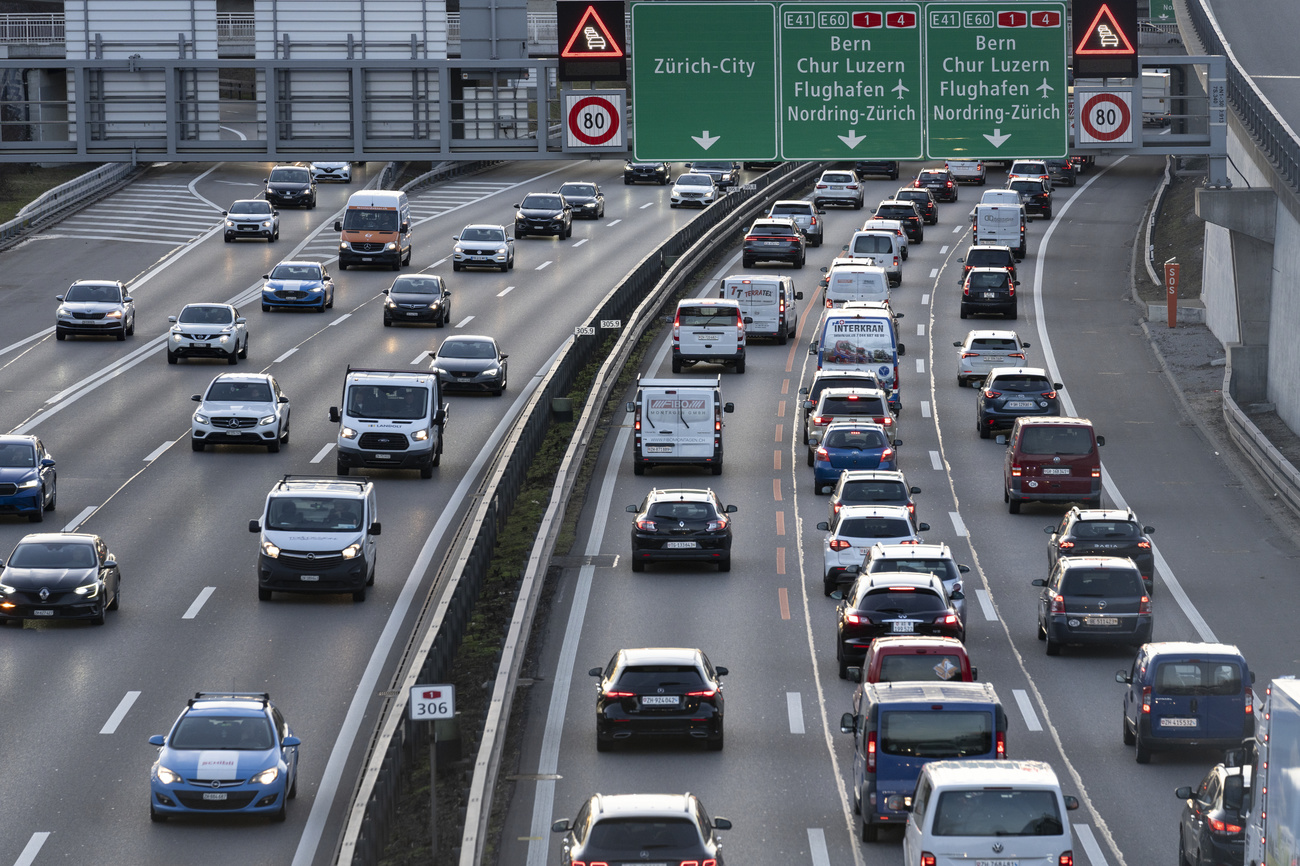How should Switzerland relieve congestion on its motorways?
On November 24 Swiss voters will decide on a government proposal to finance six motorway expansion projects aimed at improving congestion on the roads. It includes plans to widen one of the country’s major motorways to at least six lanes in key stretches between Bern and Zurich and between Geneva and Lausanne.
The overall proposal is set to cost CHF5.3 billion ($6.2 billion).
Is such an investment really necessary to cope with the increase in traffic? Or is it a waste of money and incompatible with Switzerland’s climate objectives, as some critics say?
Let us know your thoughts below. We want to hear your opinions.
































Join the conversation!